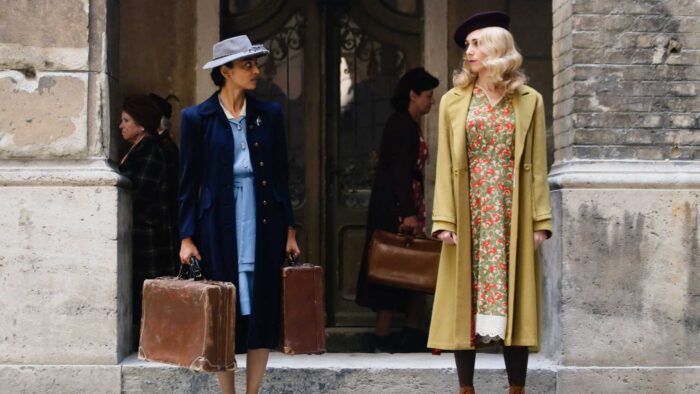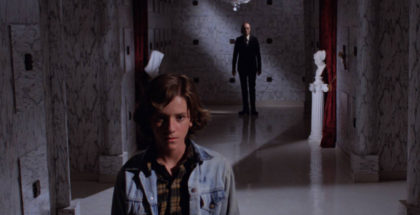VOD film review: A Call to Spy
Review Overview
Writing
3Performances
4Political implications
3Cathy Brennan | On 04, Nov 2020
Director: Lydia Dean Pilcher
Cast: Sarah Megan Thomas, Stana Katic, Radhika Apte
Certificate: 12
A Call to Spy is about the role women played in defeating the Nazis through espionage. Inspired by real-life events and people, the set-up is that while working for the British Special Operations Branch, Vera Atkins (Stana Katic) recruits American Virginia Hall (Sarah Megan Thomas, also the writer of the film) and Anglo-Indian Muslim Noor Inayat Khan (Radhika Apte) to infiltrate Vichy and occupied France respectively. Their goal is to support nascent resistance movements and undermine the Nazi war machine.
The film structures itself around the individual struggles of these three women, with Hall taking the centre stage since her story hews closest to the conventions of a spy thriller. There is an awareness of intersectional identity politics that shapes each woman’s story: Vera’s career is made precarious by her being a Jewish-Romanian in a British establishment; Noor’s motivation is to prove herself as an Indian woman in a time when the subcontinent was under British rule; and Hall is consistently underestimated due to pervasive ableism on account of having lost her leg in an accident. All three women have something to prove, not to the Nazis, but to a prejudiced British government.
There is remarkably little spying, despite the title. Instead, most of the film comprises conversations between characters about the logistics of establishing a network of agents. The lack of spectacle isn’t a hindrance, it just means that there is far greater need for the script to deliver. It is here that A Call to Spy fails. The dialogue, line by line, is leaden, delivered by the actors with a clunking rhythm. There is little in the way of deeper feeling, making it difficult to emotionally invest in any of the characters beyond the historical circumstances they find themselves in.
Even though A Call to Spy is two hours long, much of the narrative is spread remarkably thin, resulting in graceless paragraphs of on-screen text at the end explaining where the characters ended up. A major plot-point even resolves itself through this text, which suggests that the film-makers may not have had the time or resources to film it. Regardless, it is the audience who loses out.
One of the few bright spots in the script is how it draws attention to antisemitism and xenophobia in wartime Britain through Vera’s storyline. However, this is conveyed purely through on-the-nose dialogue between Vera and her colleague, Colonel Buckmaster (Linus Roache).
Among the deluge of text at the end of A Call to Spy is the information that Hall went on to become the first female agent in the CIA, which named a training facility after her in 2016, presenting itself in a more feminist light and playing up the role women have played in the organisation. Having spent the film framing her as an exceptional hero, this is listed by the filmmakers as yet another achievement in a historic career. A Call to Spy will be of some small interest to those studying how feminist politics can be co-opted, but the poor script and uneven structure make it a miss for all but the most ardent fans of wartime dramas. Even then, they might be better served by one of the books written about Virginia Hall in the past few years.

















